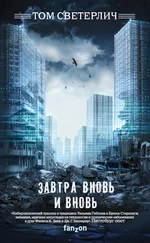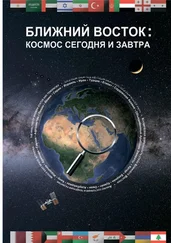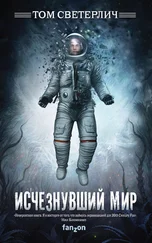Timothy says, “Looks good.”
Agatha’s moving—a sink turns on. She’s talking, removing each tool from the surgeon arm—click, click. My hearing diminishes, but soon iLux appears in gold cursive on a field of black. The Adware welcomes me and begins transferring my account settings, using Focal Networks as the default for hosting information. When the progress bar fills, I open my eyes.
“How do you like it?” says Agatha.
Definition higher than reality —I understand what that pitch means, now—yes. The world was low-res and fuzzy before, like I’d been viewing the world through Vaseline goggles until now, everything suddenly so clear. Agatha’s face—glistening lips, wisps of hair, long mascara-thick lashes.
“I love it,” I tell her. “This is incredible—”
The world is designed—orderly apps, housed in spherical graphics. The augs are accessible but unobtrusive: date, time, weather, GPS mapping, social networking. Agatha’s profile populates my vision—her cheer vids spooling in half-light, but when my thought shifts to one it becomes opaque. The retinal cam is already autostoring imagery of Agatha, placing her in my address book, autodictating where and when we’d met, autocopying pics and vids from her profile that had caught my attention in the split second I’d scanned through them. FaceRank interprets my vitals, tracks changes in my baseline, places her near the top of recent looks, just below my memory of Twiggy. When I look at Timothy, the Adware captures his face but autocell populates info because he lacks a profile, the iLux interacting smoothly with my thoughts before they’ve even become my conscious thoughts.
Timothy signs that I’ve been successfully discharged and that he’s taking me home. He lifts my arm around his shoulder and helps me from the clinic—it’s difficult to walk, like my numbed consciousness floats a foot or so in front of me. Wide steps, unsure of where my foot will land and constantly surprised at the suddenness of pavement. Timothy eases me into the Fiat. He tells me to close my eyes so I don’t get motion sickness and vomit in his car. I close my eyes. He turns corners tightly, my body swaying in the passenger seat—I’m clutching the seat belt harness for support, nauseous from the heightened sense perception.
“Go ahead and try to sleep,” he tells me. “You don’t need to stay awake—”
I try to relax, consider sleep, but instead of sleep I load the City—the load time’s negligible, the processing speed of the iLux incredible. The Parkway East, the iLux defaulting to the highest resolution, rendering the City indistinguishable from reality, through the tunnel—
A rain-murky evening. The Starbucks at the corner of Craig and Forbes, a bare-breasted mermaid logo on glass. People drift through the café, once captured inadvertently on security cameras or retinal cams, their profiles pulled from cloud storage, archived in the City because of the Right to Remember Act and used to populate these places, even these minor corners of the City. Ghosts living their scant bit of electronic existence in a perpetual loop, ordering coffee forever, sitting at café tables forever, repeating the same conversations forever, trying to hurry home through the rain but ending up back in line for coffee. They seem to look at me, interact with me. I watch them through the rain-streaked windows holding umbrellas, their skin absurdly white in the failing light, like deep-sea fish swimming through the depths. They’ll disappear from existence as soon as they’re out of my view, until someone else is here to see them. Students from the Catholic schools and Carnegie Mellon and Chatham wait in line—the sound of steam in milk, of shouted orders, May I call? —every table filled, faces illuminated in the pale blue of laptop glow. Hannah Massey is here—she’s here, waiting in line to order a drink. Archived here from when she was still alive.
“Hannah,” I say, and she turns her head as if she’s heard me.
“Earl Grey,” she says.
I watch her leave Starbucks, tea in hand. I watch her cross the intersection in the rain. The moment she’s gone, she seems like a dream, like maybe I hadn’t seen her here at all. Across the street, the Carnegie Museum is shrouded in fog, graced with iron-black statues of angels that always reminded me of the angels of history sent to transcribe the end of time. What did these angels see when the end of time finally arrived? Were they burned? Maybe they melted or maybe survived, iron corpses ready for excavation. Everything’s re-created here—every detail. Corporate Starbucks feeds trademarked Sense details to the City—the trademarked smell of Komodo Dragon Blend. The trademarked taste and mouthfeel of an iced pumpkin scone.
I was working on a poem, I remember, waiting for Theresa.
What would our lives have been like? Never sure, but I try to be realistic with my regrets, memories like these affording me a window, I think, to my life as it was never lived. Theresa meeting me, wearing a rather expensive maternity dress she picked up from Nordstrom the week before—a Maggy London crepe de chine with indigo and gold. She looked stunning. I remember her carrying the weight of our child like someone burdened with secret good news. Reservations at the Union Grill up the street. We met friends of hers that night, Jake and Bex from the Arts Council—I remember feeling hopelessly out of my depth, unable to contribute to the conversation, really, beyond a dirty joke here and there and some talk about a poet I’d been reading that no one else had heard of. Impressed with Theresa—how quick she was, how she carried the conversation. I remember she chatted about sustainable horticulture and a set of adult classes she’d received grant funding to offer at the Conservatory—a community garden project she was eager to start in East Liberty, a greening initiative. We left that evening with plans to attend a young professionals networking happy hour the following week—and I assume this is what our lives may have been like, mundanely glamorous, new dresses from Nordstrom to attend fund-raising parties and cocktail hours, meeting new people important to Theresa’s work. I would have finished my Ph.D., I imagine. I would have gotten Confluence Press off the ground. Who knows? It would have been fun, though. Our lives together would have been fun. We walk to our car, parked a few blocks away near the Greek Orthodox church—drenched by the rain, but laughing. All the buses that pass by are filled with ghosts.
Timothy drops me at my apartment.
“How can I see Waverly? I want to thank him—”
“Soon,” he says. “He’s actually having a little get-together in a few months, if you can make it—”
“I’m free,” I tell him. “I’m always free—”
I undress upstairs, learning my new system: the iLux suite from Panda with Meopta retinal lenses. The old SIM transferred over. Global Connect on Waverly’s account—no more hunting hot spots. My skull’s more valuable now, like it’s been gold-dipped and diamond-studded—horror stories of thugs breaking heads, stripping expensive tech, I’d make a much better victim now. The pain’s a residual ache—a discomfort, really—through my shoulders, behind my eyes, a chemical itch across my scalp.
Concentrate on Albion to dull the discomfort. The dossier Waverly’s secretary had forwarded me is titled Albion —but it’s just a thin profile listing her Pittsburgh addresses, the make of her car, the names of a few friends. An insubstantial résumé—he hasn’t even included samples of her design work, no portfolio. No places of employment listed, no personal details—no suggestions of where I might find her, where she spent time when she was alive. Wouldn’t Waverly know more than this? Attachments of a few other images, candid photographs unlike the glamour shot Waverly initially showed me, but the effect is still the same—Albion’s beauty is unreal, like a Pre-Raphaelite stunner even when she’s just lounging on a sofa or posing on the overlook of Mount Washington, the city skyline framed behind her. I run her name through the obvious databases—the Post-Gazette Archive, the Tribune-Review Online, the U.S. Census Historical Register and the Bureau of Labor Statistics—but the name “Waverly, Albion O’Hara” results in zero hits. I want to find her.
Читать дальше
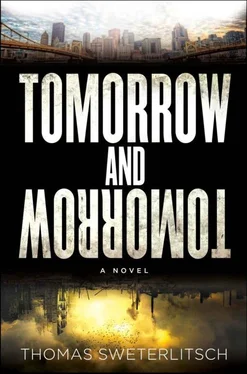

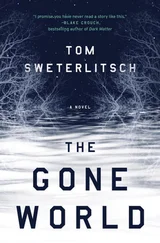
![Том Светерлич - Завтра вновь и вновь [litres]](/books/401288/tom-sveterlich-zavtra-vnov-i-vnov-litres-thumb.webp)
![Том Светерлич - Исчезнувший мир [litres]](/books/420722/tom-sveterlich-ischeznuvshij-mir-litres-thumb.webp)

